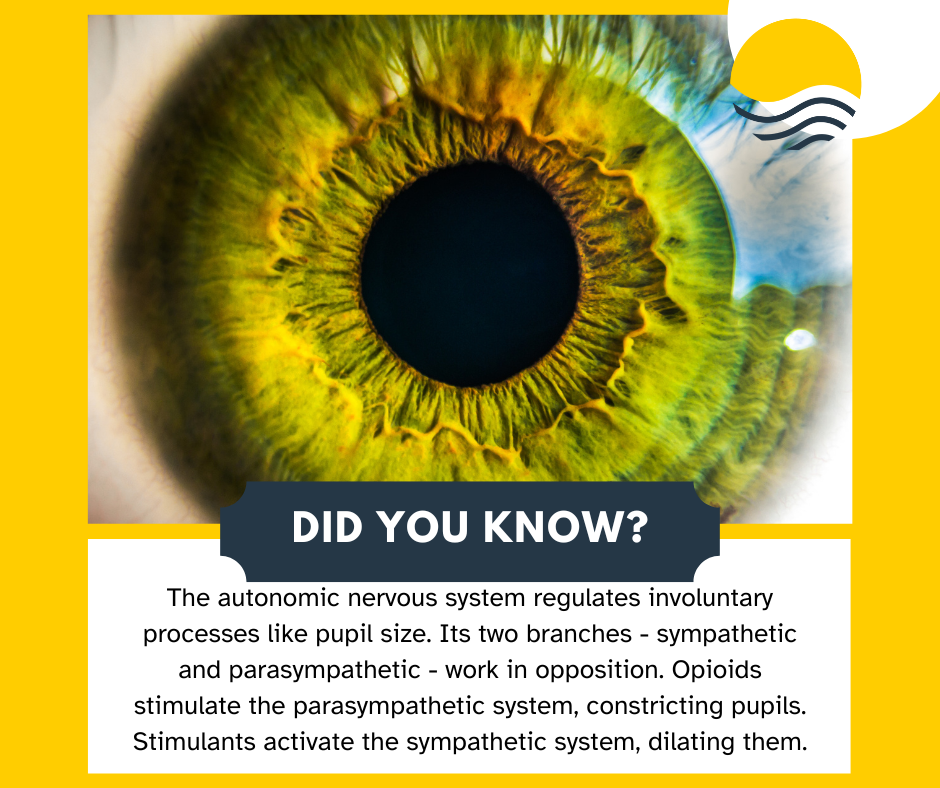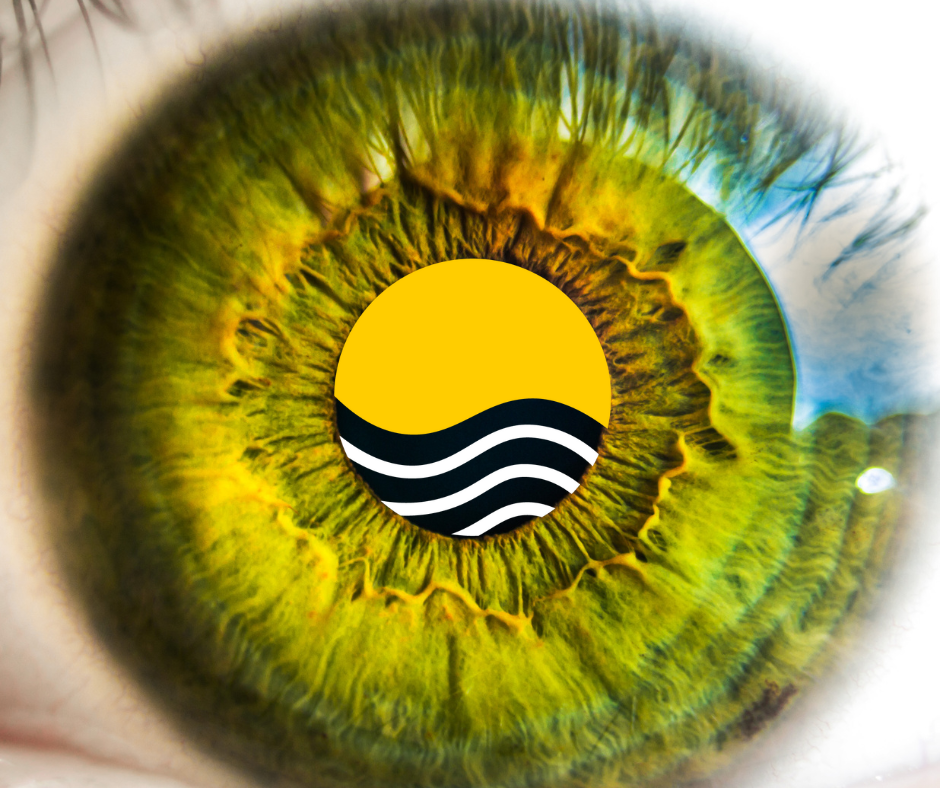You’ve probably noticed those dilated pupils in the mirror and wondered, what’s going on with my eyes? The truth is, your pupils dilate for many reasons – some harmless, some concerning. If it’s drug use, specifically opiates or opioids, there are solutions. Detox and addiction treatment at Evoke Wellness of Miramar can help you regain control. Their compassionate experts use proven techniques to safely wean you off damaging substances. With their assistance, those dilated pupils will return to normal size as your body and mind heal. Your journey to sobriety begins with an understanding of what caused those enlarged pupils. Let Evoke Wellness’ experience guide you. Recovery is possible – over two million people prove it every year. You simply need the right help.
What Are Dilated Pupils?
Pupil Dilation Explained
Your pupils are the dark circles in the center of your eyes that allow light to enter. Pupil dilation refers to when these pupils become larger or more open. This happens automatically in low light conditions to allow more light in and improve vision.
Dangers of Dilated Pupils
While not harmful on their own, severely dilated pupils from drug use can indicate an overdose or adverse reaction. Excessively large pupils combined with other symptoms like nausea, dizziness or disorientation are warning signs of a potential overdose emergency. Seeking prompt addiction treatment and detox support is crucial for overcoming substance abuse issues causing pupillary changes.
Causes of Dilated Pupils
Physical Factors
Your pupils dilate for various physical reasons. Certain drugs like opioids (heroin, fentanyl), stimulants (cocaine), and psychedelics directly affect the muscles controlling pupil size. Low light conditions also trigger dilation to improve vision.
Emotional State
Strong emotions like fear, anxiety or sexual arousal can cause pupil dilation. This is part of the “fight or flight” response where pupils widen to let in more light and visual information.
Medical Conditions
Pupil dilation may signal underlying conditions like head injuries, stroke, brain tumors, or nerve problems affecting the eye muscles. Diabetes, Parkinson’s disease, and some medications also influence pupil size.
With so many potential causes, dilated pupils don’t necessarily mean substance abuse. However, combined with other signs like confusion or drowsiness, it could indicate an overdose requiring immediate medical care. Pupil size provides a window into your physiological and emotional state. Pay attention to these subtle changes.
Medicines and Drugs That Can Dilate Pupils
Opioids and Opiates
Heroin, fentanyl, and other opioids like oxycodone and hydrocodone can all cause pupil dilation. As these powerful narcotics bind to receptors in the brain, the pupils become enlarged or “pinned.”
This visible side effect can indicate opioid intoxication or overdose. The more potent the opioid, the more pronounced the pupillary response.
Stimulants
Drugs like cocaine, methamphetamine, and MDMA (ecstasy) are stimulants that also dilate pupils. Their effects on the sympathetic nervous system trigger pupil dilation along with increased heart rate and blood pressure.
Other Substances
Certain medications like antidepressants, decongestants, and even some natural supplements containing ephedra can also cause dilated pupils. Anticholinergics used to treat conditions like asthma, Parkinson’s, and overactive bladder may have this side effect too.
Being aware of pupillary responses to different substances can aid in identifying potential overdoses or adverse reactions. At Evoke Wellness, our team is experienced in managing withdrawal from many drugs that impact pupil size.
The Mechanism Behind Drug-Induced Pupil Dilation
Opioids and Pupillary Response
Opioids like heroin, fentanyl, and prescription painkillers act on the opioid receptors in the brain. This affects the pupillary light reflex, causing constricted pupils or “pinpoint pupils.”
Stimulants and Dilated Pupils
Stimulants like cocaine, methamphetamines, and certain prescription medications work by increasing levels of neurotransmitters like dopamine and norepinephrine. This overstimulation triggers the sympathetic nervous system’s “fight or flight” response, dilating the pupils.
The Role of the Autonomic Nervous System
The autonomic nervous system regulates involuntary processes like pupil size. Its two branches – sympathetic and parasympathetic – work in opposition. Opioids stimulate the parasympathetic system, constricting pupils. Stimulants activate the sympathetic system, dilating them.

Treatment for Dilated Pupils
Detox and Withdrawal
The first step in treating dilated pupils caused by substance abuse is medically-supervised detox. During this process, your body rids itself of the drugs or alcohol while managing potentially dangerous withdrawal symptoms.
Withdrawal can cause severe pupil dilation as your brain’s neurotransmitters attempt to rebalance. Medications may be provided to ease cravings and other effects.
Behavioral Therapies
After detox, various behavioral therapies help rewire your brain’s drug associations. Cognitive behavioral therapy identifies and modifies underlying thoughts and behaviors related to substance abuse.
Contingency management uses small rewards to reinforce positive behaviors like attending counseling or passing drug tests. Family therapy brings loved ones into the process.
Medication-Assisted Treatment
For some, medication-assisted treatment can support recovery by relieving cravings or blocking a drug’s effects. Buprenorphine and methadone are common for opioid addictions.
These medications, combined with counseling, provide a comprehensive treatment approach. They help normalize pupil size and other physical effects while developing coping strategies.
Dilated Pupils FAQ
You may have many questions about dilated pupils and how they relate to substance abuse. Here are some common queries addressed:
- What causes pupils to dilate? Pupil dilation occurs when the iris muscles relax, allowing more light to enter the eye. This can happen due to low light conditions, certain medications, or the use of drugs like opioids, stimulants, and hallucinogens.
- Is it always a sign of drug use? No, dilated pupils alone do not necessarily indicate substance abuse. Medical conditions, medications, stress, and other factors can also lead to enlarged pupils.
- How long do dilated pupils last? The duration varies based on the underlying cause. With drug use, pupils may remain dilated for several hours up to a day after the effects have worn off.
- When should I be concerned? Extremely enlarged pupils combined with other symptoms like confusion, agitation, or impaired coordination could signal a medical emergency. Seek immediate help if this occurs.
Overcoming Addiction
Pupil size can be an indicator of substance abuse issues that require professional treatment. Evoke Wellness at Miramar offers comprehensive addiction recovery programs to help you or a loved one heal and reclaim your life.
Conclusion
You now understand how commonly-abused drugs like opioids dilate the pupils and the risks involved. While addiction feels inescapable, dedicated treatment programs using medication-assisted therapies can help you overcome it. The compassionate staff at Evoke Wellness will support your recovery every step of the way. Don’t wait to reach out for help. You have the power to take control of your health and wellbeing. Start your journey today by contacting Evoke Wellness for a confidential consultation about evidence-based treatment options personalized for your needs. There is hope – a brighter future lies ahead if you take the first step. You can heal and thrive again.
Begin Your Journey with Evoke Wellness at Miramar
If you or a loved one is considering outpatient treatment, Evoke Wellness at Miramar invites you to contact us. Our compassionate team is ready to answer your questions, discuss your needs, and help you take the first steps toward recovery. In Miramar, you’ll find more than just a treatment program – you’ll discover a community dedicated to your wellness and success. Together, let’s embrace the journey to recovery and the promise of a new beginning. Call us at (833) 819-6066 today or reach out online.


